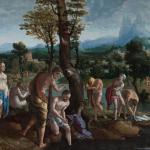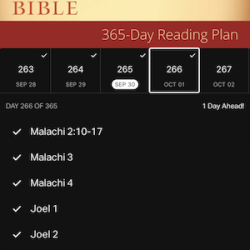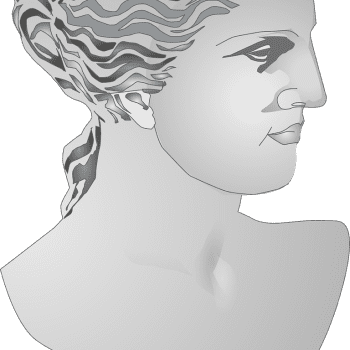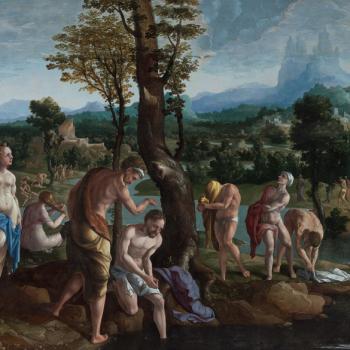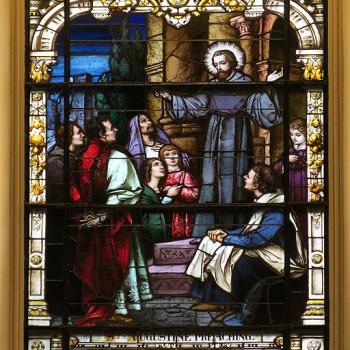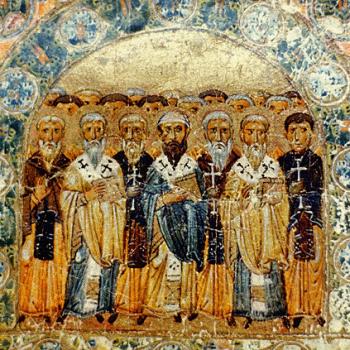
Introduction
Barbie has been an American cultural icon for little girls since its inception in 1959. The dolls have represented femininity, poise, empowerment, and the possibilities of life. So, naturally, when the Barbie (2022) movie was announced, my wife was ecstatic to go see it. We even bought tickets for the opening night in a local theater by our home. This was a new experience for me, considering she typically would feel neutral about seeing a movie in theaters and she was often the type to fall asleep in the middle of the film. I however, am a passionate cinephile and love the movie-going experience regardless of the film. So recently, we got a babysitter, donned our pink, and went to the movies.
I was one of the few men in the theater in a sea of pink and spent the next two hours being entertained by the energetic Margot Robbie and the hilarious, overacting Ryan Gosling. It was a nice change of pace from slew of male-centric, blockbuster movies typically featuring a male lead to a mostly male audience. Typically films featuring women and catering to women audiences do not sell as well as the next iteration of the MCU. This movie is certainly anything but typical and asks important questions about the male and female dichotomy in our world. Could it be possible that director Greta Gerwig uses biblical imagery and even possibly reference John Milton’s neoclassical epic, Paradise Lost?
In the Beginning
The story begins with “stereotypical” Barbie (Margot Robbie; henceforth simply: Barbie) living her best, life day by day in a daze of vivid pink full of fashion, friends, and fiesta. The “Barbie World” is a total matriarchy, with women at the helm in government, medicine, and entertainment. The Kens’ of the Barbie World (Ryan Gosling and others) act as a mere accessory to their female counterparts. Ken lives to be noticed by Barbie and thinks he is nothing without her.
Landing Flat on Your Feet
The conflict in the story begins with stereotypical Barbie losing her “barbieness” and becoming more human. Her feet are now flat, she no longer floats, and she has thoughts of death. These are imperfections that could not be further than the image of Barbie. After consulting the “Crazy Barbie,” she has to choose whether to be transported to the real world and find the young woman who shares her connection or stay home and ignore the existential feelings and changes she is going through. The choices are symbolized by high heels (her previous life of blissful pinkness) or birkenstocks (the crude flat-footedness of the real world). Reluctant to change and at the insistence of Crazy Barbie, she accepts her journey.
A Barbie girl, in the Man-ly World
Upon entering the “real world” she immediately encounters a male dominated society complete with jeers and objectification everywhere she goes. Ken, who had accompanied Barbie to this world, is overwhelmed but in a different way. He encounters respect, the likes of which he has never experienced in the “Barbie World.” He then travels back to “Barbie World” and imposes patriarchy upon the barbies before Barbie returns. The rest of the film is dedicated to Barbie returning home and trying to take back the Barbie World from the hands of the Kens and the instituted patriarchy.
Paradise Lost
From a Christian perspective, there is a lot to glean. Greta Gerwig’s script is full of theological statements and biblical allusions that ask questions concerning the roles of men and women in our world. First, Genesis 1-3 is immediately alluded to in the creation of Barbie first, and then Ken as her accessory (helper). The statement is even made that there is no “Ken without Barbie.”
Paradise Lost by John Milton, came to mind as Barbie becomes more human and there is chaos introduced to a perfect world. A Neoclassical, poetic retelling in the style of Virgil and Homer, Milton’s epic gives an elaborated context to the Fall and battle for heaven at the beginning of time. Although the epic is an embellishment of the events only briefly mentioned in scripture, Paradise Lost remains a masterpiece of Neoclassical British Literature in which Milton attempted to answer deep theological questions concerning Sin, Death, Hell and Atonement.
In Paradise Lost, Milton personifies complex concepts such as these as characters in his Epic. Satan has an incestuous relationship with Sin which produces Death. Death is then introduced to the world after Adam and Eve rebel as they build (literally in the poem) a highway connecting Earth to Hell. Genesis 3 tells us that there was no concept of Death until it was introduced and then everything in creation changed. Adam and Eve introduced Sin into the world and the warning was that they would surely die (Gen 2:17).
In the same way, the Barbie World is a paradise and it is not until Barbie has these existential thoughts that things begin to change and she becomes mortal. Death enters her world and Barbie then has to experience humanity and all of its ugliness. The conflict between Barbie and Ken (the Man and the Woman) comes to its height after this moment as well, which brings me to my next point.
Barbie v. Ken
One of the best points of the film, I believe, is the message in the conflict between the two genders. We have two worlds which are foils of each other, the female dominated Barbie World and the patriarchal real world. We find out later in the movie that the Barbie World is far from perfection and is only an illusion of paradise as it contains the same problems but the reverse. Although Barbie and women rule the world, Ken reveals that he felt the oppression being a mere “accessory” to Barbie. It was this oppression which led to his uprising to subjugate the Barbies.
This conflict is also seen in the pages of Scripture. It is no secret that the Bible reflects a male dominated perspective and clearly shows that this is not the ideal, while still a reality. Men abuse each other and women throughout the stories of the Bible from cover to cover. Men’s thirst for power are seen in scenes of rape and human trafficing while equality is rarely sought by the characters in the Bible.
This conflict seen in the Barbie Movie reflects the curse brought on by Sin in the Garden of Eden in Genesis 3:16b “and your desire will be for your husband, and he will rule over you” (NIV). In most translations the curse is not imposed directly by God but is a result of the Fall and can be read “now that sin has entered into the world, there will now be a power struggle between men and women.” The two genders believe themselves to be best suited to run the world and the audience of the Barbie Movie finds out that neither one is equipped to do it on their own.
A Fractured Image
The message of Scripture is that within unity of both genders, God delights in the creation of both male and female. In creation, every time God breathes an aspect of reality into existence he deems it “good” (tov) Gen 1:1-31. It is not until Genesis 2:18 where God notices something is “not good,” the Man’s isolation. When God creates the Woman, he says that they now fully image God in the poetic statement “So God created man in his own image, he created them in the image of God; he created them male and female” (CSB). This is implying that the Garden of Eden and the image of God were not yet complete in imaging God until He created the Woman to dwell with God and the Man. This gives better context to passages like Matthew 18:20 where Jesus says “For where two or three are gathered together in my name, there am I in the midst of them.” The image of God is fully imaged in the unity of believers and the unity and equality of man and woman. When there is a power struggle or “battle of the sexes” this results in a fracturing of the image. Humanity is then only a shell of itself as one gender vies for power over the other.
Conclusion
The Barbie movie is certainly a celebration of femininity and a critique of patriarchy. Similarly to John Milton’s Paradise Lost, the Barbie Movie reveals that there is a problem between men and women. This problem goes deeper than psychology and sociology. The inequalities and division between men and women is deeply theological and can be traced back to the Garden of Eden as a result of the Fall.
Media such as these two artistic expressions are merely revealing that there is a problem. It helps us ask questions about our own existence and roles we impose on the opposite sex. Are we truly loving our neighbor including the opposite sex? Films like these should encourage Christians to have these conversations and ask how we are imaging God in our churches and in our homes. These acts alone can bring Christ into our midsts. The hope of Christ’s return brings the hope that men and women can image/represent God fully in our equality.



